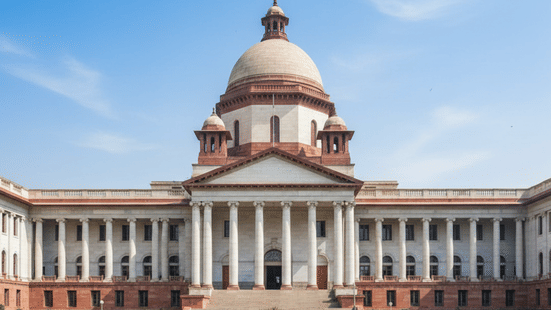 75% Attendance Mandatory for Contesting DU Elections; Delhi HC
75% Attendance Mandatory for Contesting DU Elections; Delhi HC75% Attendance Mandatory for Contesting DU Elections : The judgment made by Delhi High Court carries wider significance as it directly impacts the ongoing Delhi University Students Union Election for 2025-26, scheduled for September 18, with counting on September 19. There are 21 students in the fray for the top four posts - president, vice president, secretary, and joint secretary. The Delhi High Court has ruled that students who fail to meet the mandatory 75% attendance requirement cannot be allowed to contest elections to student bodies in Delhi University Colleges. Justice Meena Pushkarna, as reported by Live Law, observed that colleges are well within their authority to reject nominations of candidates falling short of the prescribed attendance benchmark. The ruling reinforces the emphasis on academic compliance even in the highly politicized student election process.
The court held that the minimum attendance rule was not merely procedural but integral to ensuring discipline and academic seriousness among candidates seeking to represent the student community. Court reasoning: Justice Pushkarna underlined that student leaders must first fulfill their academic obligations before aspiring to hold representative office. If the attendance of the candidates is below the minimum 75% attendance criteria, the concerned college would be within its authority to reject the nomination.
Women candidates stand out in this year's elections, which have drawn attention for the notable rise of women contestants from DU's premier departments and colleges. The Department of Buddhist Studies alone has fielded three candidates for president, while aspirants from Hindu College, Bhagini Nivedita College, and the Department of Social Work are contesting the secretary and joint secretary posts. Their prominence reflects an evolving campus politics where academic standing and inclusivity go hand in hand.
Campaigning has centered on student concerns including hostel shortages, escalating fees, women's safety, and implementation of the National Education Policy 2020. Political outfits ABVP and NSUI remain dominant players, but the election has also seen independent candidates bringing diverse perspectives into the race. The High Court's emphasis on attendance as a prerequisite adds a new dimension to the scrutiny of candidates. It affirms that student representatives cannot be divorced from academic responsibility, reinforcing a balance between activism and educational commitment. For universities often criticized as ideological battlegrounds, the ruling may be seen as an attempt to tether politics more closely to academic discipline.
Keep visiting CollegeDekho for the latest Education News on entrance exams, board exams and admissions. You can also write to us at our email ID news@collegedekho.com.











